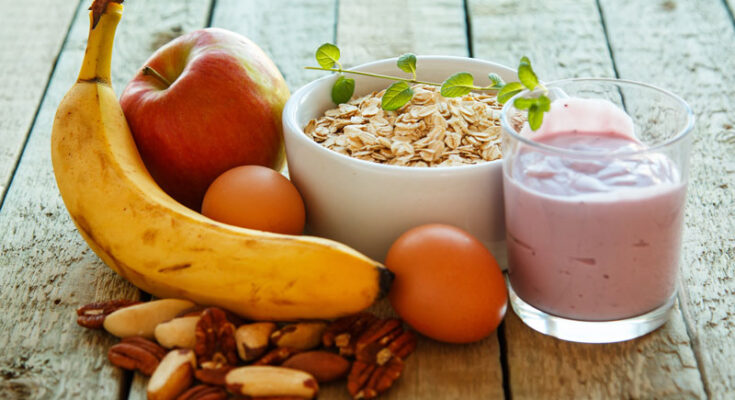In a world where fast food and processed snacks are often the go-to choices for many, making the switch to healthier eating can be a daunting task. For some, this shift comes after decades of poor food choices or simply a lack of knowledge about what truly nourishes the body. But what happens when someone, after 30 years of consuming unhealthy foods, decides to embrace a new way of eating? The transformation can be both remarkable and rewarding.
This article explores the benefits of adopting healthy foods for the first time in 30 years and highlights the top choices that can help rejuvenate the body, mind, and spirit.
1. The Impact of 30 Years of Unhealthy Eating
Before diving into the benefits of healthy foods, it’s essential to understand the impact of a long-standing unhealthy diet. Years of consuming high-sugar, high-fat, and heavily processed foods can lead to a variety of health problems, including:
- Weight gain and obesity
- Heart disease and high blood pressure
- Diabetes and insulin resistance
- Poor digestion and gut health
- Fatigue and low energy
- Skin problems such as acne, wrinkles, and dullness
The transition to healthier eating can reverse some of these conditions, though it requires patience and consistency.
2. Why 30 Years? The Timing of Change
Why is 30 years a significant milestone? For many people, it’s the point where chronic health issues begin to surface more visibly, and the consequences of poor eating habits become undeniable. Additionally, at this age, people may be more open to change and self-improvement, especially if they experience a health scare or feel the effects of aging. At this juncture, individuals may finally realize the importance of food not just as fuel but as medicine.
3. Healthy Foods to Embrace for the First Time
If you’ve spent the last three decades avoiding healthy foods, the prospect of trying something new can feel overwhelming. However, there are plenty of nutrient-rich, delicious foods that can ease the transition without feeling like a sacrifice. Here are some of the best foods to incorporate into your diet for optimal health:
Leafy Greens and Vegetables
For many, vegetables are not an exciting part of the diet. But leafy greens, such as spinach, kale, and Swiss chard, are packed with vitamins (A, C, K), minerals (iron, calcium), and antioxidants. These superfoods can boost immune function, improve digestion, and promote heart health. The key is to experiment with different preparations: try adding them to smoothies, stir-fries, or even baking them into healthy chips.
Whole Grains: A Fiber Powerhouse
White rice and pasta are staple foods for many, but replacing them with whole grains like quinoa, brown rice, oats, and barley can make a dramatic difference in health. Whole grains are rich in fiber, which promotes healthy digestion, helps control blood sugar levels, and supports heart health. They also provide long-lasting energy, keeping you feeling fuller for longer.
Nuts, Seeds, and Healthy Fats
Healthy fats, particularly those found in nuts and seeds (almonds, walnuts, chia seeds, flaxseeds), are critical for brain function and hormonal balance. They also help reduce inflammation in the body. Adding a handful of mixed nuts or sprinkling seeds over your salads or yogurt can help satisfy hunger and provide essential nutrients like omega-3 fatty acids.
Fruits and Berries: Nature’s Candy
Fruit is a natural and delicious way to satisfy sweet cravings without resorting to refined sugars. Berries such as blueberries, strawberries, and raspberries are high in antioxidants, which fight oxidative stress and reduce inflammation. Citrus fruits, apples, and bananas are also excellent sources of vitamins, fiber, and potassium.
Fermented Foods for Gut Health
Fermented foods like yogurt, kefir, sauerkraut, and kimchi introduce beneficial probiotics into the gut, which are essential for maintaining a healthy digestive system. A balanced microbiome can help with immunity, mood regulation, and nutrient absorption. If you haven’t tried fermented foods yet, start with simple options like plain yogurt or probiotic-rich beverages.
Legumes and Plant-Based Proteins
Beans, lentils, chickpeas, and peas are excellent sources of plant-based protein, fiber, and iron. They can be used in soups, stews, salads, or even as meat replacements in dishes like tacos and burgers. These plant-based options support muscle growth, regulate blood sugar, and provide long-lasting energy, all while being lower in fat and calories than animal-based proteins.
Healthy Beverages: Water, Herbal Teas, and Smoothies
For those who have spent years relying on sugary sodas or excessive coffee, switching to healthy beverages is crucial. Water should always be the primary choice for hydration, but herbal teas (ginger, chamomile, green tea) and nutrient-packed smoothies can also be excellent alternatives. These drinks hydrate, support digestion, and provide antioxidants, all without the sugar crashes associated with soda or sugary lattes.
Lean Proteins and Plant-Based Alternatives
Lean proteins such as chicken, turkey, fish, and eggs can be excellent sources of essential amino acids for muscle growth and repair. However, incorporating plant-based protein options like tofu, tempeh, and seitan can provide variety while reducing your intake of saturated fats. Both options contribute to overall health and vitality.
4. The Transition: How to Start
Making the change to a healthier diet after 30 years of unhealthy eating requires a thoughtful and gradual approach. Here are some tips to help ease the transition:
- Start Small: Begin by replacing one unhealthy meal or snack each day with a healthier option. For example, swap a sugary snack for a handful of nuts or fruit.
- Plan Your Meals: Planning your meals in advance can help you avoid the temptation of processed foods when hunger strikes. Prepare balanced meals with a variety of nutrients.
- Focus on Whole, Unprocessed Foods: Shop the perimeter of the grocery store, where fresh produce, meats, and whole grains are typically located. Avoid the aisles filled with packaged, processed foods.
- Stay Hydrated: Drink plenty of water throughout the day to support digestion, energy levels, and overall health.
- Experiment with New Recipes: Trying new dishes and cooking methods can make healthy eating more exciting and enjoyable. Look for simple, nutritious recipes to try each week.
5. The Benefits of Eating Healthy for the First Time in 30 Years
Adopting healthy foods can have a transformative effect on both physical and mental well-being. Some immediate and long-term benefits include:
- Increased Energy: Switching to nutrient-dense foods can reduce feelings of fatigue and provide sustained energy throughout the day.
- Weight Loss: A balanced, whole-food diet can support healthy weight management without the need for extreme dieting.
- Improved Digestion: Foods rich in fiber and probiotics can help restore gut health and reduce bloating, constipation, or discomfort.
- Better Skin and Hair: Eating a variety of vitamins and minerals from fruits, vegetables, and healthy fats can promote radiant skin and strong hair.
- Reduced Risk of Chronic Disease: A diet rich in antioxidants, healthy fats, and plant-based foods can lower the risk of heart disease, diabetes, and other chronic conditions.
6. A New Beginning
Eating healthy for the first time in 30 years may seem like a monumental task, but the rewards are worth the effort. By making gradual changes and incorporating nutrient-dense foods into your daily routine, you can feel better, look better, and live better. Remember, it’s not about perfection—it’s about progress. So take that first step toward a healthier, more vibrant life, and you’ll soon realize that the benefits far outweigh the challenge.
It’s never too late to start eating better. After all, your body deserves the very best after 30 years of nourishment!



